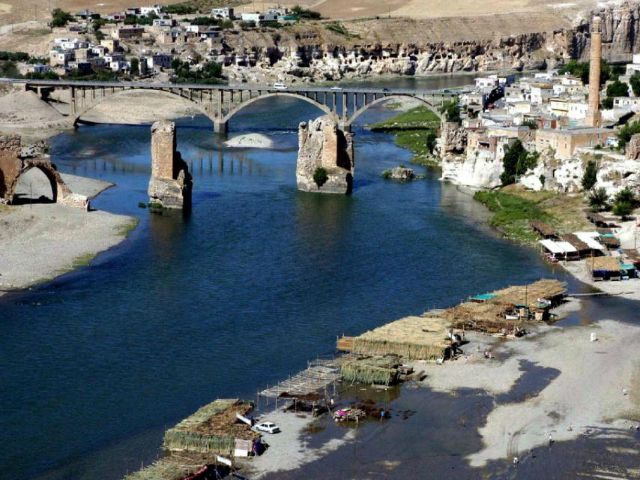Despite recent gains in national elections, Kurds in Turkey are threatening strikes against the country’s dam construction sites in Kurdish territory in the southeast. A statement from the Union of Kurdistan Communities, known by the acronym KCK, said that the construction project is primarily military in nature and, therefore, violates the ceasefire the group negotiated with the government.
“The Turkish state took advantage of the ceasefire conditions not for a democratic political resolution but to gain an advantageous position in preparation of war by building dozens of guard posts, roads for military purposes and dams in order for a cultural genocide,” the statement said.
Beginning in 1984, the KCK has agitated for the Kurdish nationalist movement, and the creation of a new state for the ethnic group. Their tactics have sometimes involved what some may call militancy or even terrorism, at least in a very broad sense.
“From now on, all the dams and vehicles used in the construction will be targeted by our guerrilla forces,” the statement also said. The KCK also advised contractors to flee the areas to escape violence.
The Kurds are Turkey’s largest ethnic minority. Some, like the KCK, advocate a separatist policy, while others take a more moderate approach to politics within Turkey.
Originally, the Kurdistan Worker’s Party, known by the acronym PKK, sided with the KCK in an armed struggle against the Turkish government. However, the party has since moderated its goals, and simply pushes for Kurdish rights within the existing political system. The PKK is still identified by the governments of both Turkey and the United States, however, as a terrorist group, and has maintained complex and often contentious relations with other Kurdish groups, including the Kurdish Regional Government of Iraq.
In the recent Turkish elections, many PKK supporters voted for the pro-Kurd People’s Democratic Party, which, for the first time in its existence, crossed the ten percent threshold for representation in the Turkish Parliament, a major victory.
The chair of the People’s Democratic Party responded to the KCK’s statement of renewed hostilities by clarifying that not all Kurds support political violence in response to the dam projects, and that his party did not necessarily condone any of the actions the KCK was planning.
“What we understood from the KCK statement is that they are not talking about a wholesale end to the cease-fire. But the cease-fire should be bilateral. We understood [that the statement demands] the construction of dams for military use be halted and that they will retaliate if this is not done,” he said.

COMMENTS
Please let us know if you're having issues with commenting.